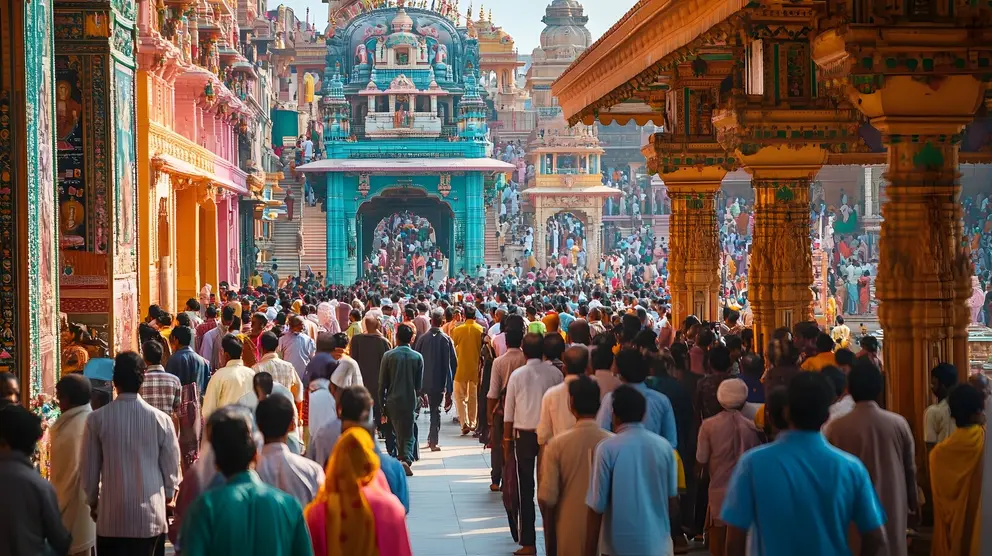India is a land of faith and spirituality. Millions of devotees visit religious sites every year, hoping to experience divinity. But amidst the ringing temple bells and sacred chants, an uncomfortable truth lingers—why does the path to God seem easier for some and harder for others?
As someone from Fatehpur, a small yet developing town in eastern Uttar Pradesh, I grew up believing that devotion was the only currency needed to seek blessings. But as I traveled across India—Uttarakhand, Rajasthan, Haryana, Punjab, and my home state—I saw how different faith looked from the ground.

Whenever I visited famous temples like Kashi Vishwanath in Varanasi, Hanuman Temple, Triveni Sangam in Prayagraj, or the ghats of Haridwar, I noticed an unsettling pattern. There were two kinds of devotees—those who could walk straight into the temple’s inner sanctum, and those who stood in never-ending queues under the scorching sun.
The privileged—celebrities, politicians, and VIPs—bypassed the crowds, escorted by temple authorities. Meanwhile, the very people who built these sacred spaces with their faith and donations were often mistreated, herded like cattle, waiting for hours for a glimpse of the deity.
This raised a troubling question: If God does not differentiate between rich and poor, why does His temple?
The recent Mahakumbh Mela reinforced this harsh reality. At this grand religious gathering, two separate Sangams existed—not created by nature, but by human hands. One was reserved for VVIPs, well-organized and pristine. The other, for the common devotees, was overcrowded, unsanitary, and chaotic.
As a result, thirty people lost their lives last week in the turmoil of mismanagement. And yet, the cycle continues—where privilege dictates access to the divine.
Despite these experiences, my faith in God remains unshaken. But I refuse to accept the man-made version of God, the one adorned in gold and guarded by bureaucracy.
I believe God does not favor a wealthy businessman over a roadside tea seller, nor does He ask for special treatment. The real God is not confined within temple walls or behind VIP passes—He exists in the hearts of those who seek Him with love and sincerity.
But today, we see two Gods—one for the privileged, welcomed with garlands, and another for the masses, struggling in lines.
Should faith be a privilege? Should access to divine blessings depend on status and power? Perhaps, it is time we stop searching for God in VIP enclosures and start looking for Him where He truly resides—in humanity, in kindness, and in the hearts of those who believe.
